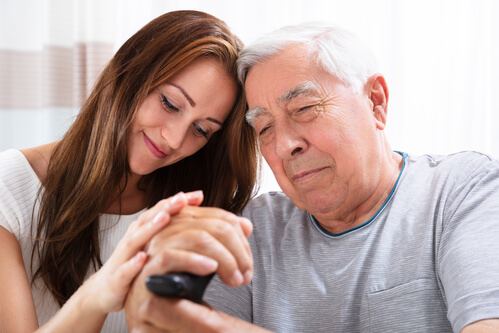
Support for caregivers
Are you one of the 44 million Americans who provide care for a family member, friend or neighbor? The typical caregiver is a 49-year-old female, but today, nearly a quarter of the nation’s caregivers are millennials between the ages of 18 and 34 of both sexes. Nearly 70% juggle a full or part-time job with caregiving responsibilities. One-third provide 21 hours or more of care per week.
November is National Family Caregivers Month, a time to honor and focus on the needs of the many caregivers among us. While we often stereotype caregivers as providing senior care, there are many health issues that encompass caregiving: special needs children, autism, cancer and life-threatening illnesses, brain injuries, ALS, MS, Alzheimer’s Disease and many other health conditions.
The toll on caregivers can be high in terms of stress, fatigue, isolation and depression. Without support, caregivers often experience a deterioration in physical, mental and financial health.
Tips for caregivers
Here are caregiver-to-caregiver basic tips for maintaining good health:
- Find someone to talk to – a counselor, a medical
person, an online network or a friend. - Identify local support resources.
- Eat properly, exercise and get enough sleep.
- Learn how to ask for help and accept it.
- Take time off, even if only a few minutes a day.
- Don’t neglect your own needs and interests.
- Recognize signs of burnout and get help.
- Learn how to say no. Pace yourself and set limits.
- Find healthy ways to deal with your stress.
- Learn from others. Get support and ideas from the
Family Caregiver Alliance, The National Family
Caregiver Support Program and Caring.com.

Tips to support caregivers
If you know a caregiver, here are some simple things you could do to help:
- Keep in touch. Caregivers often feel isolated, alone and abandoned.
- Offer concrete help. Shovel a walk, mow a lawn, run an errand, bring over a casserole, babysit the
kids. - Research. Check out local transportation, meal delivery or daycare services. Caregivers are often
too busy to do this research themselves. - Listen and care. People often need to talk in detail about problems they experience.
- Contribute financially. Caregiving costs can add up. Help with direct costs or give gift cards for
groceries and other necessities. - Be supportive. Avoid second-guessing, back-seat driving and criticism.
Your EAP can help
Your EAP offers many caregiving support resources. Login to your Member website to choose Caregiver services, or use the Search or the Locator features to access services in your area, including: Adult and child daycare · Senor centers · Nursing homes · Assisted living facilities · In-home services · Geriatric care facilities · Transportation assistance.
You can also call the EAP to discuss your specific challenges and obtain on-going emotional support.
1.800.252.4555 or 1.800.225.2527
View more newsletters at www.theEAP.com
